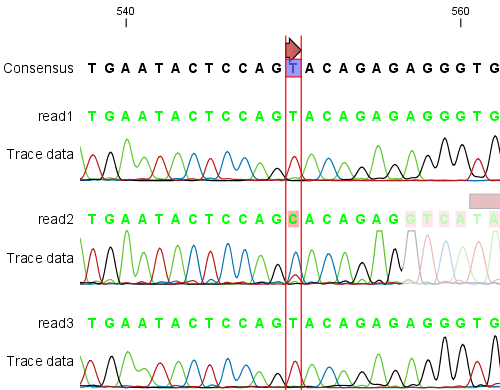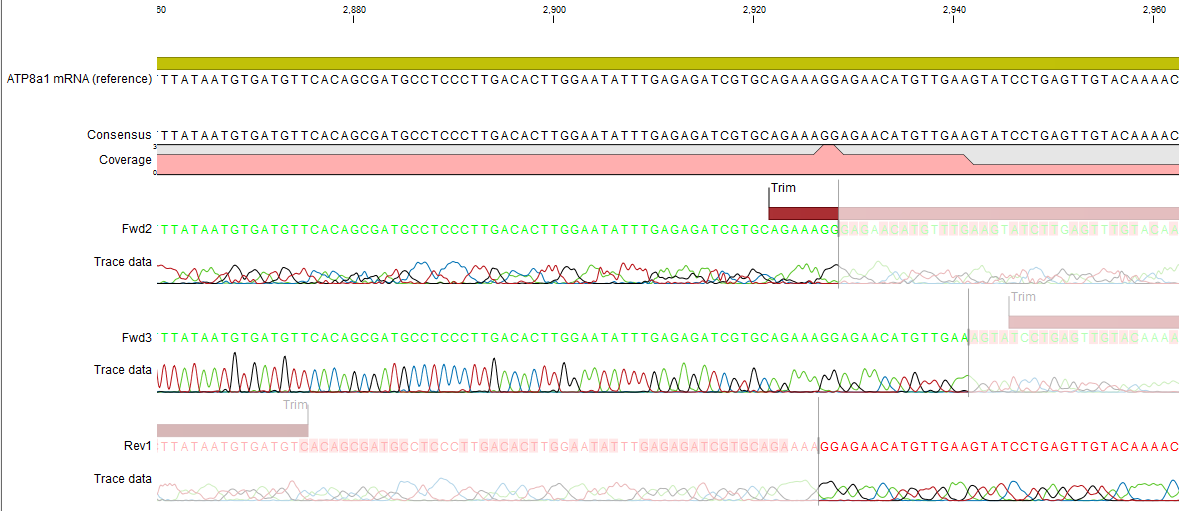View and edit contigs and read mappings
The results of Assemble Sequences or Assemble Sequences to Reference are contigs or read mappings, respectively (figure 20.12). A mapping is generated for each reference supplied as input to Assemble Sequences to Reference. Individual read mappings can be opened by double-clicking on a row in the table that lists the mappings.

Figure 20.12: The view of a contig. Controls at the bottom allow you to zoom in and out, and settings to the right control how the mapping is displayed.
Customizing how a contig or mapping looks is covered in View settings in the Side Panel.
The residue colors and traces at the ends of reads are faded in regions that do not contribute to the final contig or mapping results. This may be due to trimming before or during the assembly or to misalignment with other reads (assembly) or the reference sequence (mapping).
Simply drag the edge of the faded section to adjust the trimmed area to include more of the read in the contig or mapping (figure 20.13).

Figure 20.13: Drag the edge of the faded area to customize how much of a read should be considered in the mapping.
Note: Handles for dragging are only available when individual residues can be seen. For this, zoom fully in and chose a Compactness level of "Not compact", "Low" or "Packed".
To reverse complement an entire contig or mapping, right-click in the empty white area of the contig or mapping and choose to Reverse Complement Sequence.
Subsections
- View settings in the Side Panel
- Editing a contig or read mapping
- Sorting reads
- Read conflicts
- Using the mapping
- Extract reads from a mapping
- Variance table
